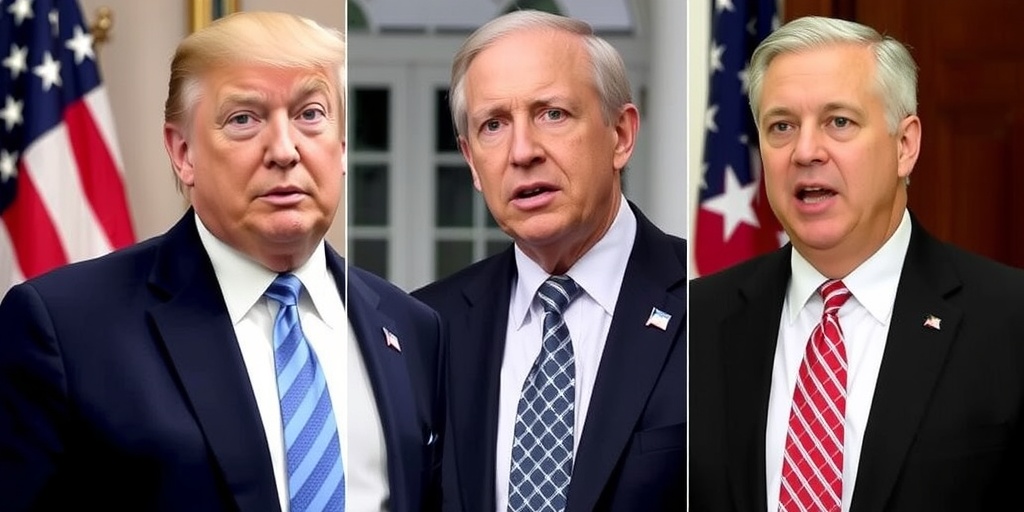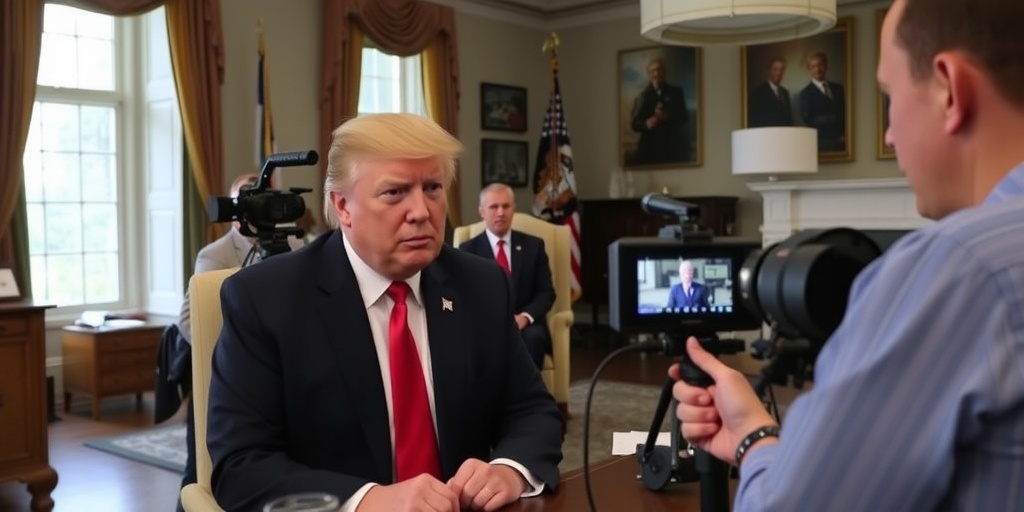Now Reading: Marco Rubio Moves to Expel South Africa’s U.S. Ambassador
-
01
Marco Rubio Moves to Expel South Africa’s U.S. Ambassador
Marco Rubio Moves to Expel South Africa’s U.S. Ambassador
Title: U.S. Secretary of State Declares South African Ambassador Persona Non Grata Amid Rising Tensions
In a significant diplomatic move, U.S. Secretary of State Marco Rubio announced on Friday that South Africa’s ambassador to the United States, Ebrahim Rasool, has been declared persona non grata. This decision, which essentially expels Rasool from his role as ambassador, stems from a series of comments the diplomat made regarding President Trump and the political climate in South Africa.
While returning from a meeting with G7 allies in Canada, Secretary Rubio took to social media to express his disapproval of Ambassador Rasool. He described Rasool as a "race-baiting politician who hates America" and President Trump, stating, “We have nothing to discuss with him and so he is considered PERSONA NON GRATA.” The declaration of persona non grata is a serious action as recognized by the 1961 Vienna Convention on Diplomatic Relations, which allows host countries to expel members of diplomatic missions without the need for an explanation. Following this designation, South Africa is mandated to either recall Rasool or terminate his functions within the mission.
Rubio’s comments came on the heels of Rasool’s remarks made at an institute in Johannesburg, where he criticized Trump for allegedly leading a “supremacist” movement against the existing political incumbents in South Africa. The remarks highlighted the growing tensions between the two nations, particularly in light of the complicated history between South Africa and the United States regarding race relations and governance.
This development is not an isolated incident. Just last month, Rubio publicly condemned the South African hosts of an upcoming Group of 20 (G20) diplomatic meeting, stating that he would not attend due to their focus on “solidarity, equality, and sustainability.” His boycott of the G20 meeting was not echoed by other nations, as several, including China, sent high-ranking officials to engage in discussions while Rubio remained absent.
The backdrop of this diplomatic rift includes President Trump’s recent executive orders aimed at South Africa. Last month, Trump signed a directive prioritizing the resettlement in the United States of white South African farmers, whom he termed “Afrikaner refugees.” This move follows claims that their land had been taken by the South African government, although such practices are not widespread in the country. The Trump administration has also announced a suspension of all U.S. aid to South Africa, increasing strain on the relationship between the two nations.
The implications of declaring Ambassador Rasool persona non grata could have lasting effects on U.S.-South African relations. Diplomats and political analysts are already expressing concerns about the potential for further diplomatic fallout. The expulsion of an ambassador is not simply an act of disapproval; it can lead to a cascade of reciprocal actions, impacting trade relations and diplomatic collaborations on various issues, including development aid, environmental initiatives, and global governance.
In light of current tensions, South Africa may find itself needing to reassess its diplomatic strategies moving forward. As the nation navigates its complex history with issues of race and governance, the reactions from both the South African government and its citizens regarding Rubio’s announcement remain to be seen. The potential for diplomatic dialogue, or further estrangement, hinges greatly on how both countries choose to respond to this evolving situation.
As Secretary of State Rubio continues to assert a vocal stance against Rasool and the South African government, analysts are watching carefully for any signs of retaliatory measures from Pretoria. The unfolding events could very well reshape discussions on foreign policy concerning Africa, particularly as other nations observe and respond to the U.S.’s increasingly bold diplomatic maneuvers.
The international community will undoubtedly be closely monitoring these developments, including how they align with wider geopolitical trends, the growing influence of countries like China in Africa, and the historical context of U.S.-African relations. As tensions escalate and potential repercussions unfold, the world watches on to see how this diplomatic confrontation will resolve, and what it might signal for the future of international diplomacy.
Stay Informed With the Latest & Most Important News
Previous Post
Next Post
-
 01New technology breakthrough has everyone talking right now
01New technology breakthrough has everyone talking right now -
 02Unbelievable life hack everyone needs to try today
02Unbelievable life hack everyone needs to try today -
 03Fascinating discovery found buried deep beneath the ocean
03Fascinating discovery found buried deep beneath the ocean -
 04Man invents genius device that solves everyday problems
04Man invents genius device that solves everyday problems -
 05Shocking discovery that changes what we know forever
05Shocking discovery that changes what we know forever -
 06Internet goes wild over celebrity’s unexpected fashion choice
06Internet goes wild over celebrity’s unexpected fashion choice -
 07Rare animal sighting stuns scientists and wildlife lovers
07Rare animal sighting stuns scientists and wildlife lovers


















